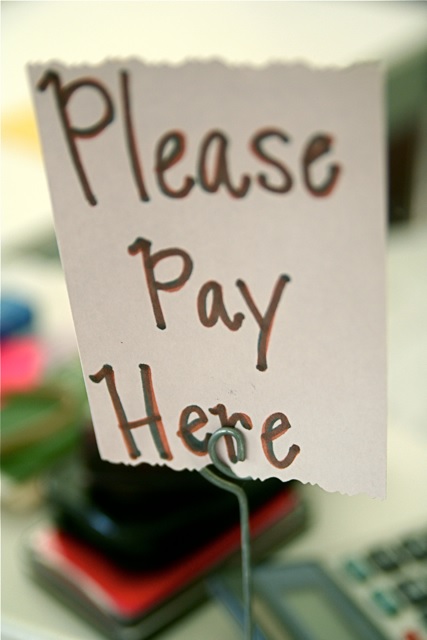
When I decided to launch this law firm, a good friend and fellow entrepreneur/lawyer warned me: “You’re going to need 6 months’ worth of money and 12 months’ worth of patience.” He was right. Fortunately, I had nearly 3 months from deciding to opening my practice until our first day in business, which gave me time to research and formulate my offerings and tap into community and professional resources to get my business off the ground.
Other entrepreneurs aren’t that lucky. They may not have the time and/or money to consult counsel prior to launching a new venture. Even on a condensed time frame or on a shoestring budget, your legal needs should be part of the discussion and plan.
Full-Time Venture Needs Financial Backing
If you want your new venture to be your full-time job, you need to be prepared for the potential financial strain that comes with that undertaking if you don’t have a spouse or other income supporting you in the meantime. You may have the gift of time, but you can only operate your business as long as you have income or savings to cover your bills. I don’t recommend jumping into a new venture without some type of financial safety net.
For entrepreneurs starting with a side hustle, you have the opposite issue. Your regular job can pay your bills while you develop your business, but it limits how many hours you can work. And depending on your circumstances, you job may not provide much money to put towards your business after paying your bills.
Make the Business Fund Itself
While every business needs some seed money to get started, make your business fund itself. When you decide to start a business, make a list of all the services, equipment, and supplies you think your company needs. Then step back and categorize each item as “Must Have” or “Nice To Have.” Ask a trusted colleague or friend to review your list and challenge you on what you need.
Many businesses don’t need much to get started. When I started this firm, I only needed an LLC, client contract templates, computer, scanner/printer, website, email address, phone number, and business cards. I gave myself a limited budget for supplies, bar dues, and to pay for my LLC and my accountant, and after that, I didn’t buy anything for the business until the business could afford it. (Even if my personal account could afford it, I made myself wait until the business could afford it.) It forced me to be scrappy, creative, and thoughtful about how I spend my money. It’s something I recommend to other entrepreneurs, including seeking out low-cost and free options when appropriate.
Prioritize
I regularly receive emails from people who need help with the legal side of starting a business, and some of them claim that they can’t afford an hour of legal services. Sometimes I wonder if these entrepreneurs didn’t do any research into the expected costs of a consult, contract, or trademark when creating their business budget. (When people can’t afford my firm, I’m happy to provide referrals to other options and/or tell them what things they can do themselves – like filing an LLC with the Arizona Corporation Commission. The forms and instructions are online.)
A fellow entrepreneur suggested that these potential clients don’t see value in paying for quality legal services. That sounds plausible. Many new entrepreneurs are focused on their expected success that they don’t want to ponder the what-if scenarios. In many ways, quality contracts and other legal services protect you when things go wrong. You often don’t need to rely on them when things go right.
My recommendation for all new entrepreneurs is to meet with a business accountant and a lawyer to make sure you’re starting out on the right foot, and that you understand the legal implications of your venture. If you have questions about business needs, you can contact me directly or connect with me on Twitter, Facebook, YouTube, or LinkedIn. You can also get access to more exclusive content that is available only to people on my mailing list, by subscribing here.



